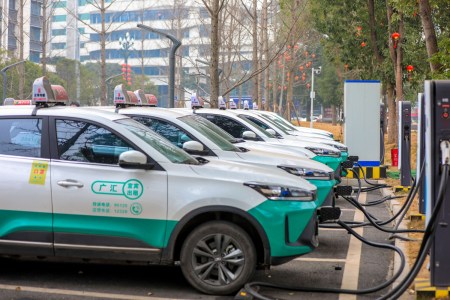The rise in popularity of electric vehicles brings with it both benefits and drawbacks. From the perspective of reducing carbon emissions, it’s a big step forward. But it’s not the only factor at play here; there’s also the way that increased demand for electric vehicles — and their batteries — could lead to an expansion of mining around the world.
In a new article for The Washington Post, Gerry Shih and Lorenzo Tugnoli explored the way that this could alter the economic and political fortunes of one country that’s home to significant deposits of lithium and other minerals used in the making of electric vehicles. The country in question is Afghanistan — and that’s where the complications begin.
Exactly how much lithium are we talking about here? The Post cites a document from the U.S. Geological Survey that states that Afghanistan “could be considered as the world’s recognized future principal source of lithium.” With the U.S. military now out of Afghanistan and the Taliban returned to power, it looks like China could emerge as the primary trading partner for the aforementioned lithium.
This Former Tesla Executive Has a Plan for Recycling EV Batteries
This addresses one of the big questions for EV adoptionAs Shih and Tugnoli explain, there are a few factors at play in that “could,” however. There’s no agreement in place yet between the two countries, and the Post article cites the arrest of one Chinese businessman who was accused of smuggling lithium. There’s also the matter of the infrastructure for mining, which would need a lot of work to expand to the level necessary for large-scale extraction.
Still, it’s hard to imagine a situation where these minerals aren’t extracted in large quantities, at least in part. And that, in turn, makes this situation one where environmental, technological and geopolitical concerns all converge — with no clear outcome.
Thanks for reading InsideHook. Sign up for our daily newsletter and be in the know.


















